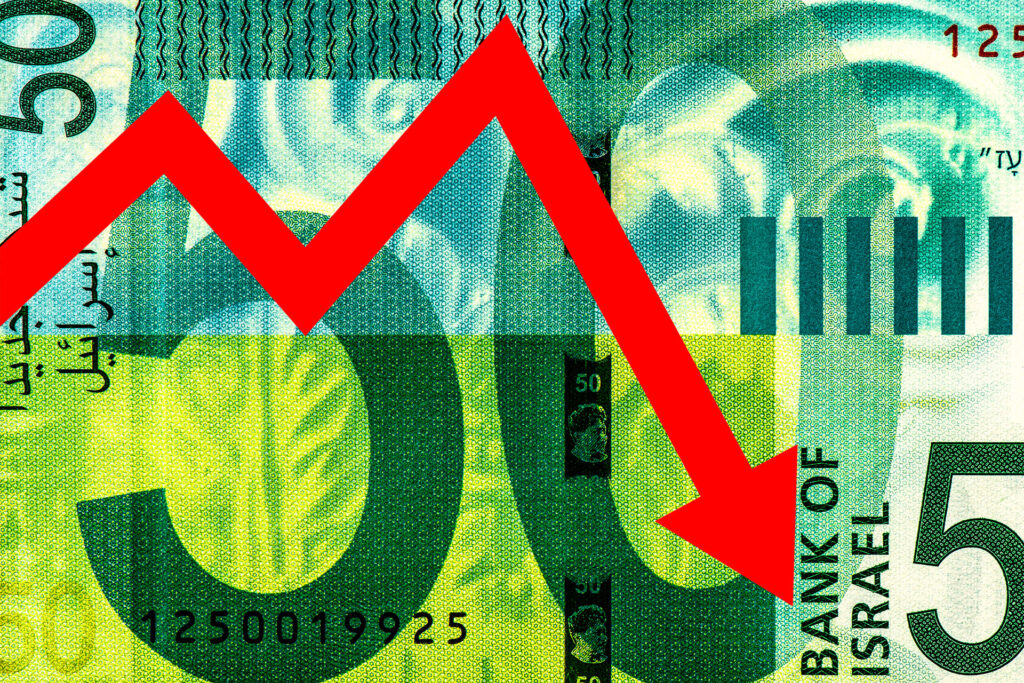The shekel (Israeli local currency) witnessed a sharp decline today, Wednesday, against the dollar and the euro, amid increasing economic and political pressures, especially the ongoing war on Gaza and its negative impact on the occupation economy.
In the afternoon, the shekel exchange rate against the dollar rose by 1.26% to reach 3.717 shekels/dollar, while its exchange rate against the euro rose by 1.35% to reach 4.107 shekels/euros, according to Globes.
Main reasons for decline
According to Ronen Menachem, chief economist at Mizrahi Tefahot Bank, the sharp decline on Wall Street yesterday was one of the main reasons for the shekel’s decline.
He points out that expectations of continued declines have increased pressure on local institutions, which have reduced their exposure to foreign currencies, forcing them to convert the shekel into foreign currencies.
The unstable political environment also plays a major role, with uncertainty surrounding the hostage deal negotiations, the future of the war in Gaza and the resumption of talks on judicial reform all adding to the weakness of the shekel. Menachem noted that last year the shekel had fallen by 10% before the war due to the proposed judicial reforms.
Supporting factors
Despite these challenges, the chief economist at Mizrahi Tefahot Bank points out that there are factors that could support the shekel in the future. One of these factors is the new fiscal policies proposed by Finance Minister Bezalel Smotrich, which include reducing the deficit target for 2025 to 4% of GDP.
This step, according to Menachem, may help stabilize the shekel, especially since it is in line with the directions of the Bank of Israel and credit rating agencies.


